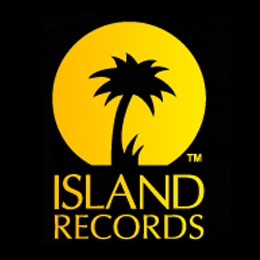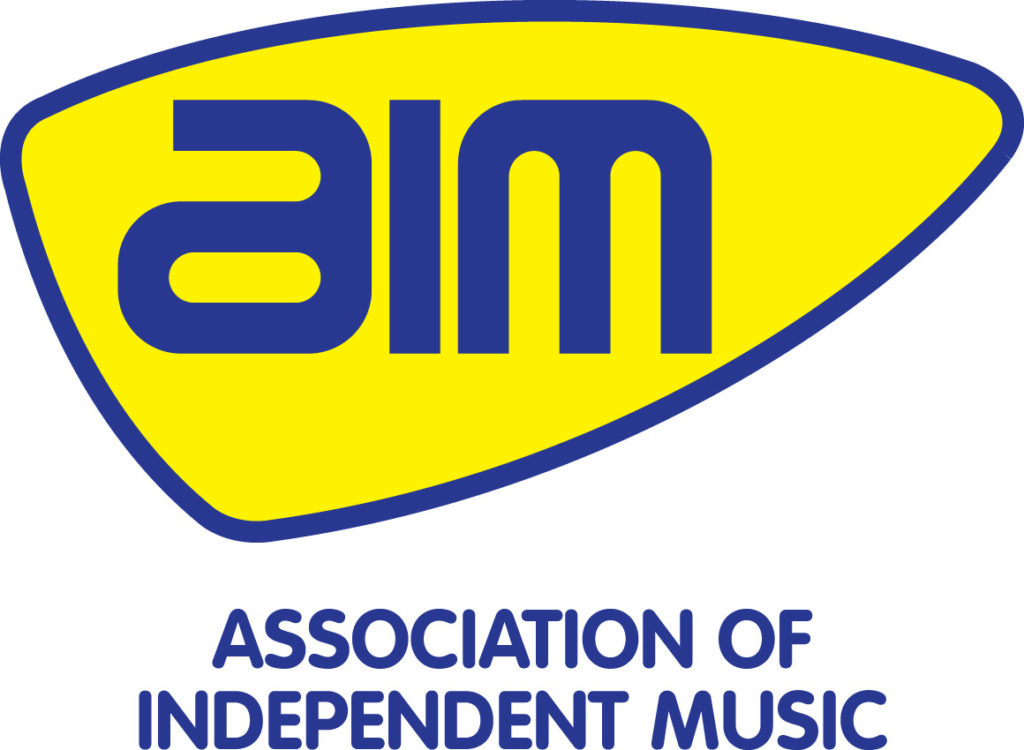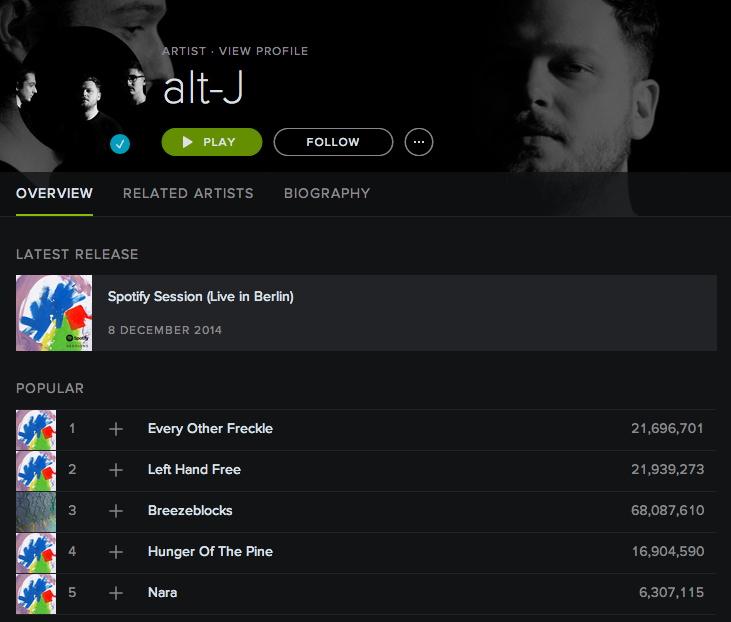Independent labels know a lot about Alison Wenham.
We know she’s a forthright orator whose fierce intellect can skewer the biggest and baddest enemies of the indie music sector.
We know she’s a passionate, pragmatic strategist who fights to unify and galvanise the disparate comrades of AIM (and WIN, the Worldwide Independent Network, of which she is also CEO).
And, yes, we know that, to many of her flock, she is a matriarchal guardian – someone who we can turn to when we need clarion advice… or just need our heads banging together.
We know lots of ‘whats’ about Alison – but we rarely ask much about ‘why’.
Why just over 15 years ago she decided to create AIM and pull together a collective (and, it’s fair to say, initially sceptical) voice for the independent community.
Why she continues to battle for fair treatment towards a sector that isn’t always exactly gushing with its appreciation.
And why she’s never short of energy to needle those market-hungry major labels – especially when they’re bullying the less corporate side of the business.
[PIAS]’s Kenny Gates decided to try and find out.
During Kenny’s chat with Alison below, she protested that she’s “actually quite a simple soul” – and there is certainly one straightforward version of her career that fits this bill.
She started working in retail, eventually moving into the classical music sector with UK indie Conifer before turning to the dark side and working for BMG, then a major label, for the best part of the 1990s.
Alison clearly had a flair for independent business: under her direction, Conifer grew to be the UK’s largest independent record and distribution company in any specialist field.
But it’s the experience between the cracks in this timeline – her recollections of a tragic lack of diversity at the top of the UK music biz, her first-hand experience of corporate malpractice, her early struggles to get AIM off the ground – that perhaps tells us more about what drives a true figurehead of our industry…
A big question to start, Alison. How have you ended up doing what you do?
I’ve never had a career plan. I don’t know if women do, generally. There doesn’t tend to be a big picture or grand vision for us.
My career is pretty boring. I’ve worked in a lot of different jobs, nearly always on the indie side.
At Conifer, I did a deal with Zomba [in 1992] to run all of their music library stuff. Then about three to four years later I got offered a job at BMG. And I said: ‘Nah, why would I want to come and work for you?’
“I had a sofa in my office and first class travel [at BMG]. I was told I couldn’t keep my car because it looked too old.”
They had one of the greatest legacies in the world but they couldn’t compete with Universal or EMI on classical. I was about 40 at that time.
Then over the week I started to think about it: ‘Just because you’ve been on the indie side all your life doesn’t mean that you wouldn’t enjoy it – you might!’
I worked out a way to give it a fighting chance of being very successful, and that was to bring Conifer into BMG [in 1995].
Our market share was double theirs. They had about 2.9% and we had about 6%. Putting it all together meant you had a very significant company.
 And so you became an employee of a ‘major’.
And so you became an employee of a ‘major’.
I worked at BMG for about five years. I learned a lot.
I had a sofa in my office and first-class travel; I was told I couldn’t keep my car because it looked too old. I had to get a new one, to match the aspirational value of the role.
After about four years of it I just ended up thinking: ‘This world is so not me.’
We all know it’s easy to fall into the trap as an indie: at a major I’d have unlimited resource and I could achieve more…
You’ll understand this very well: at Conifer, we’d started production because we thought that as a distributor, eventually the success we’d have would be our downfall.
We’d help make our label partners – like Blue Note and Nonesuch – successful in the UK, and then their owners [EMI, Warner] took them back.
That didn’t feel very satisfying. So we built up a balance between our owned music and our third-party stuff that felt comfortable.
So why BMG?
I thought they would bring the international opportunities. I also thought those opportunities would be much more coherent and easy to access than they were at Conifer – we had some pretty big artists by this point and our overseas business was very exposed.
We were going through different distributors. It was a patchwork; labour intensive, low margin and it was risky. So I thought about that, and, yes, I thought about money.
“Indies were brought in to energise the corporate culture at BMG; We wanted access to selling more records. I’m not sure it worked out for anyone in the end.”
The appeal from BMG’s perspective was that they thought they would get hold of independent thinking, entrepreneurship.
They brought in Martin Heath, me, Keith Blackhurst and Pete Hadfield. And they also had Christian Tattersfield running NorthWestSide with Nick Raphael.
We were bought in to energise the corporate culture; we wanted to access that corporate culture to sell more records.
And I’m not sure it worked for anyone by the end.
What makes you want to represent independents? Why are they worth defending any more than a major company?
That’s a good question! I don’t know if they are any more worth defending.
All industry needs its defense lines, it’s just that ours has a fault in it.
Maybe that will heal one day, maybe it won’t.
It’s a fault that’s most sharply seen in the Anglo-American axis of the industry.
Certainly in the 1980s, it didn’t exist, then in the 1990s the majors started to eat each other up; to grow and grow and grow.
Before then, the big indies were about half the size of the smallest majors. Everybody had a chance to have a hit record.
I’m a great believer in competition; I believe it’s good for businesses and artists.
So is the idea that indies have powerful market share now wrong? If in the 1960s, 1970s or 1980s an indie had a bigger influence over the majors?
 In 1989, the independents had 40% of the market. The market increased in value because of the CD.
In 1989, the independents had 40% of the market. The market increased in value because of the CD.
But what happened from that point was a rapid transfer of market share: Virgin, Chrysalis, A&M, Island… these big independents became part of the corporate world.
“All industry needs its defense lines – it’s just that ours has a fault in it.”
There is a now fracture in our industry. I think the independents face a real threat; you can do so such harm in this industry as a major label without even knowing it – without ever intending to.
That’s because the majors aren’t in an ecosystem. They are natural predators.
Exactly. There’s no corporate social responsibility in that world for the health of the rest of the companies in your industry.
Music is not something you do because you think you’re going to make a lot of money out of it. I don’t know a single person who entered the music industry thinking that way.
You do it because you have to; because it’s in your blood. We’ve lost a lot of the big indies from the late nineties [to majors].
In the early noughties I thought: ‘Sh*t. This isn’t good. This is a slow walk to nowhere.’
But then something great started to happen at AIM: companies that started up from 2000-2005 are now really succeeding; take Sunday Best, Stolen Recordings, Hassle Records, Full Time Hobby – those sort of small, well-run business that are doing alright, thank you very much.
After Conifer, you were MD at BMG Entertainment International. That must have made you feel like a bit of a rare breed: a woman at the top echelons of a major.
It’s been lonely.
When I was an independent, it never crossed my mind that there was any imbalance anywhere in the industry. You get up and do your job the best you can.
When I took over [at Conifer] we were eight people and when I [joined BMG] we were 40 people – a real mix of ages, genders, backgrounds. All on merit.
“When I went onto the BPI Council, it was a complete boys’ club, from top to bottom.”
Then I was asked by the BPI to join their classical committee. It was a bit moribund; they wanted some new energy and fresh ideas.
And then I went onto the BPI Council. Wow. It was a complete boys’ club, from top to bottom.
I was the first elected woman on that council, ever. It was 1990. Then I got let into the PPL board… same thing.
Did you feel treated differently because you were a woman?
I think I unsettled people. Put guys and girls together in business you get a certain kind of jive going. You’re trying to run the best company, with the best people, the best brains.
Then you walk in [to the BPI or PPL in the 1990s] and it’s a tribe with a hierarchy that’s almost pre-determined – whether by market share or length of service or by reputation.
What happens in those structures is that you don’t really foster innovation. You don’t really step outside of that comfort zone. And those that do so end up feeling a bit exposed.
“Did I feel threatened? Never. But did I feel awkward? Of Course.”
Did I feel threatened? Never. But did I feel awkward? Of course.
I could tell they were unsettled when I arrived. There was a tentativeness, a nervousness. It was foreign to them.
This industry had allowed men to own all of the seats at the top table. It never crossed their minds that their might be lots of women who deserved a place.
But in some ways, the blokes have been quite proud of me. Everyone’s sort of aware now that it’s not a good look to be a boys’ club in an industry like this.
Now you have an even tougher job on your hands: independent companies are by nature individualistic. You represent AIM: a body that tries to encourage collective thinking amongst people who are determined to forge their own path!
 I didn’t say it was easy! Our members are as different from each other as they are from a major.
I didn’t say it was easy! Our members are as different from each other as they are from a major.
Some are reticent to join AIM because they think that somehow they’ll be surrendering their identity or their personality.
You have to be very careful to make sure whatever you decide upon is a very strongly-held shared view amongst members.
For example, when the whole file-sharing thing blew up, we did a deal with Napster because we could see a big business forming and we wanted first-mover advantage from the independents.
Napster got killed by the majors, everyone knows that story – what a silly thing to do. Then file-sharing just exploded.
“Napster got killed by the majors, everybody knows that story – what a silly thing to do.”
Napster had essentially taught the world how to do this, then Kazaa learnt from Napster how not to get caught – to not have a centralised server with all your information on it. We never put out a unified AIM view at that time because we knew our members had differing views.
They might have very different beliefs and personalities, but there is a difference between people who work in the indie sector and those who work in the major sector.
The culture in which you’re in defines how you operate. And in majors, eventually, they grind you down. They grind you to dust, sometimes.
I remember phoning a few people the day I started AIM: Sam O’Brien, Guy Holmes, Martin Goldschmidt, Martin Mills, Alan McGee. Some I knew, some I didn’t. And I was asking all of them for money!
There was a real directness about it. I just felt: ‘I’m home again.’ Because if people didn’t like it, at least they said so!
At a major getting a straight answer was quite often one of the most difficult things you could attempt.
You were fiercely opposed to Universal’s takeover of EMI. Looking at the market impact since, is it as bad as you feared?
No, I’ve actually been quite surprised.
I can’t read it: you buy the third biggest recorded music company in the world and you lose market share. Bizarre.
It’s early days, though. That catalogue, think about it; it is a formidable steam ship. The market in streaming is still quite young.
When the whole world is able to receive and connect with music digitally, the outcome might be very different.
Do you think independents over-reacted to UMG buying EMI?
I think we should stand against consolidation on the very principle that it is not good for creativity; it’s not good for musicians, artists or business.
I’m in favour of keeping things disrupted.
Have you looked at the leaked 2011 Sony and Spotify contract?
 I haven’t finished reading it yet, but I dare say it’s pretty complicated.
I haven’t finished reading it yet, but I dare say it’s pretty complicated.
The streaming licence itself is quite simple, and then you’ve got all these other things that are moving away from the centre – [advertising] credits and such.
It didn’t look too terrible to me, really.
As indies, we’re always paranoid it’s worse for us than for them!
What puzzles me is that these companies say they pay advances, breakage etc. [to performers] but then the artists say they’re not getting paid properly.
You have to wonder…
What was your first job in music?
It was at the very imaginatively-titled The Record Shop, in Hitchin, Hertfordshire.
This was in the days when the bus used to come in from the villages and people would flood into the shop – Tuesday and Fridays, market day.
We had listening booths where you could pay 10p to hear the latest single.
“If you go to as many schools as I did, you learn to rely on yourself.”
My dad was an engineer so we were always moving; I never stayed anywhere more than 18 months, which is why I think I’m the way I am!
If you go to as many schools as I did and be the new girl every time you become a little bit of a nomad. You learn to rely on yourself.
Am I right in saying you’re a musician?
I always wanted to play the piano, and we never had one when I was younger – we didn’t have enough money.
I got in with a group of people who were doing A-Level music and there was a piano in their room, so I started playing that.
Then the boy next door to me was a violin player who ended up in the Royal Opera House. And it just changed my life. Just like that.
I was planning to go to Oxford or Cambridge to do English – I was good at it. But I stopped it all and started to play music. And I still do. I can play bit of Debussy.
I ask this of everyone: Are you a romantic?
Yes, I think so. I’m an idealist, certainly.
What about a hopeless romantic?
God no. Definitely not.
Finish this line. Without the independent music community…
The record industry would be bland, dull, sorry and boring.